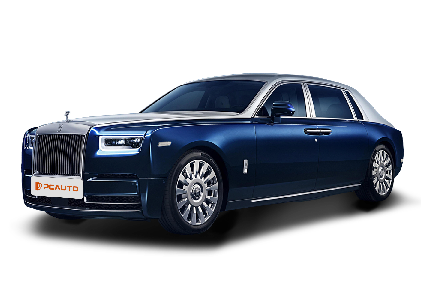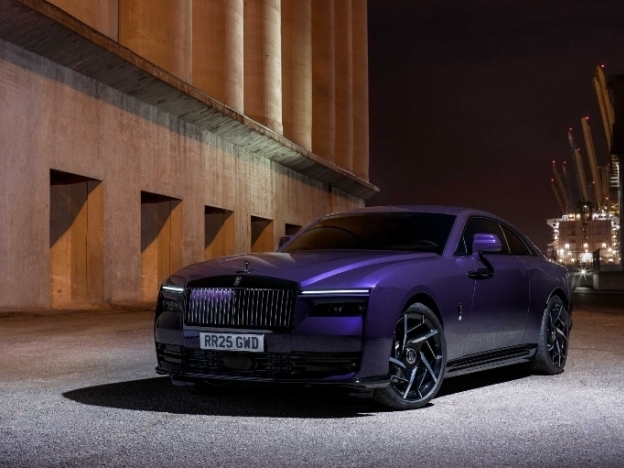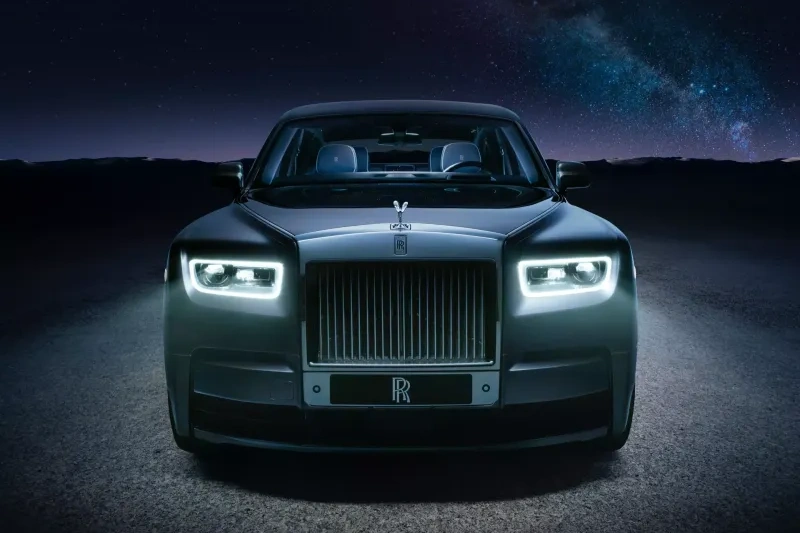Q
What is the top speed of the 2011 Rolls-Royce Ghost?
The 2011 Rolls-Royce Ghost tops out at 250 km/h, a speed capped by an electronic limiter to keep things safely in check – right in line with Rolls-Royce's whole vibe of elegance and comfort. Under the hood, there's a 6.6-litre V12 twin-turbo engine cranking out 563 horsepower and 780 Nm of torque, so the power's definitely there. But let's be real, Rolls-Royce isn't about raw speed; it's all about that silky-smooth driving experience. For drivers in Malaysia, the Ghost's lush interior, killer sound insulation, and fancy suspension setup make it a solid fit for the country's mixed bag of roads. Whether you're stuck in city gridlock or cruising down the highway, this thing serves up top-tier comfort. And here's the kicker: even with all that performance, Rolls-Royce's whole "magic carpet ride" philosophy shines through. So even when you're moving at speed, the cabin stays dead quiet and eerily stable – that's one of the big things that sets Rolls apart from the other ultra-luxury players.
Special Disclaimer: This content is published by users and does not represent the views or position of PCauto.
Related Q&A
Q
Is the 2011 Rolls-Royce Ghost reliable?
The 2011 Rolls-Royce Ghost holds up pretty well in terms of reliability. As you'd expect from a top-tier luxury brand, the craftsmanship and materials are absolutely top-notch. That 6.6-liter V12 twin-turbo engine under the hood is a tried-and-tested unit—smooth power delivery and built to last. The transmission and chassis tuning are also nicely sorted, making it a good fit for Malaysian roads.
But here's the thing with these luxury rides: maintenance costs can bite. Genuine parts and specialized servicing, in particular, might hit the wallet harder here in Malaysia. My advice? Stick to regular professional check-ups to keep it running like a dream for the long haul.
If you're a Malaysian buyer eyeing a used Ghost, do your homework. Dig into the full service history and vehicle background to steer clear of any hidden surprises. On the upside, these luxury cars tend to hold their value fairly steady in Malaysia, though the exact resale performance will always depend on the specific condition of the car and how the market's moving at the time.
Q
How much is a 2011 Rolls-Royce Ghost worth?
If you're scouring Malaysia's used car scene for a 2011 Rolls-Royce Ghost, you'll likely be looking at prices in the ballpark of RM800k to RM1.2 million. Of course, where exactly it lands in that range hinges on stuff like how the car's been kept, mileage under its belt, service history, and the spec level—top-trim models or those in mint condition can easily push past that upper end.
The Ghost, even as the "entry point" to Rolls-Royce ownership, is all about that signature silent ride, insanely lavish interior, and the buttery-smooth punch of a V12. The 2011 model packs a 6.6-liter twin-turbo unit cranking out 563 horsepower, making it a dream for folks who want luxury and comfort dialed up to 11.
In Malaysia, these ultra-luxury rides tend to hold their value pretty well, but don't sleep on the extra costs—import duties, insurance, and maintenance can add up quick. Smart move? Go through a reputable dealer or get a pro inspection to check the car's past, make sure there's no accident or flood damage in its history. And hey, keeping a Ghost in tip-top shape isn't cheap, but sticking with the original factoory service is key to preserving its value. The local Rolls-Royce authorized center should have you covered for all that pro care.
Popular Cars
Model Year
Car Compare
Car Photo
Latest Q&A
Q
What is the top selling car brand in Malaysia 2025?
Perodua was the best-selling brand in the Malaysian automotive market in 2025, with total annual sales reaching 359,904 units, far exceeding Proton's 151,561 units in second place. This achievement confirms its absolute advantages in cost-effectiveness and market penetration as a local brand. Toyota ranked third with 129,085 units, continuing to lead the non-national car segment, while Honda ranked fourth with 75,599 units, reflecting the solid position of Japanese brands in the traditional fuel vehicle sector. Notably, Chinese brands Chery and BYD entered the top six with 31,666 units and 14,407 units respectively, with year-on-year growth rates as high as 60% and 68%, demonstrating the success of their electric vehicle and cost-effective SUV strategies. From the monthly data, Perodua's monthly sales remained stable at over 30,000 units, and set a record of 33,657 units in November, with its flagship model Bezza continuing to lead the segment. Overall, the market pattern in 2025 showed a situation of dominance by the two national car giants, steady performance of Japanese brands, and the rise of Chinese brands. Although electric vehicle brands like Tesla did not enter the top ten of the year, their monthly sales have exceeded 1,300 units, indicating that future competition will become more diversified.
Q
What is the richest car in Malaysia?
Currently, the most expensive car model in the Malaysian market is the Bugatti Brouillard 2026, priced at a staggering MYR 90,000,000. This car represents the pinnacle of the ultra-luxury automobile sector. Its W16 engine and extreme lightweight design make it a symbol of performance and luxury. Second is the Bugatti Centodieci 2022, priced at MYR 30,000,000. This limited-edition model pays tribute to the classic EB110 and only 10 units were produced worldwide. The Ferrari F80 series ranks third with prices ranging from MYR 15,600,000 to MYR 16,000,000, and its hybrid system showcases the brand's cutting-edge technology. It is worth noting that the prices of ultra-luxury cars are significantly influenced by factors such as limited production, handcrafted customization, and import duties. Bugatti models are generally fully imported, while some Ferrari models can be customized through official channels. In comparison, locally assembled luxury cars in Malaysia, such as the Porsche Cayenne CKD version, are more competitively priced, but top-tier supercars are still mainly imported from European original factories, and their price systems are basically in line with the international market.
Q
Which car brand has the best resale value in Malaysia?
In the Malaysian used car market, Japanese brands such as Toyota and Honda, as well as local brands Perodua and Proton, usually have high resale value retention rates. Among them, models like Toyota Hilux and Perodua Myvi are highly favored for their durability and low maintenance costs. Although German cars like Mercedes-Benz are common in the used car market, their residual value rates are slightly lower than those of mainstream Japanese models due to high maintenance costs. Local brands can maintain relatively stable prices when resold by virtue of their high cost performance and extensive after-sales networks. For example, Proton X50 has shown outstanding residual value performance in recent years due to the technical endorsement from its cooperation with Geely. It should be noted that vehicle residual value is affected by multiple factors such as vehicle condition, mileage, market demand, and economic environment. It is recommended to refer to data from authoritative used car platforms or professional evaluation reports before purchasing a car.
Q
What is the best selling Chinese car in Malaysia?
Currently, the best-selling Chinese brand car in the Malaysian market is Chery, which sold 31,666 units in 2025, ranking fifth in the brand sales list with a year-on-year growth of 60%. Its compact SUV Jaecoo J7 exceeded 10,000 units in sales as a single model, becoming the most outstanding Chinese model in the local market. BYD followed closely with 14,407 units sold, a year-on-year increase of 68%, primarily driven by its new energy models. In terms of growth trends, both Chery and BYD exhibit strong upward momentum. Chery better meets local consumer demand with its cost-effective fuel and hybrid models, while BYD is gradually expanding its market share through its advantages in electrification technology. Other Chinese brands such as Great Wall Haval and Jetour have annual sales below 5,000 units, showing a significant gap compared to the leading brands. Notably, Chery has maintained a growth rate exceeding 60% for two consecutive years, with its product positioning highly aligned with Malaysian consumer preferences. It is expected to retain its leading position among Chinese brands in the near term.
Q
Who has the best car history report?
In Malaysia, as representatives of local automotive brands, Proton and Perodua possess the most comprehensive and historically significant reports on automotive development. Since its establishment in 1985, Proton has gradually achieved localization by adopting Mitsubishi's technology; its models such as Saga and Persona have become national car icons, and in recent years, it has launched SUV models like the X70 and ventured into the electric vehicle sector. Perodua, through its partnership with Daihatsu, has captured approximately 40% of the market share with economical compact cars such as Myvi and Axia, and its reports document the transformation from imported component substitution to independent R&D. Both brands regularly release production and sales data as well as technical white papers through the Malaysian Automotive Association (MAA), while third-party platforms like AutoBuzz and Wapcar also provide long-term reliability tracking reports based on user feedback. Notably, local brand reports typically encompass government policy support (e.g., domestic tax incentives), local supply chain integration, and export milestones (such as Proton's expansion into the Middle East market)—content rarely featured in international brand reports. For specific model histories, one may consult Proton Saga's 35-year evolution records or Perodua Myvi's detailed archives highlighting its 15 consecutive years as the best-selling model.
View More












Pros
Cons